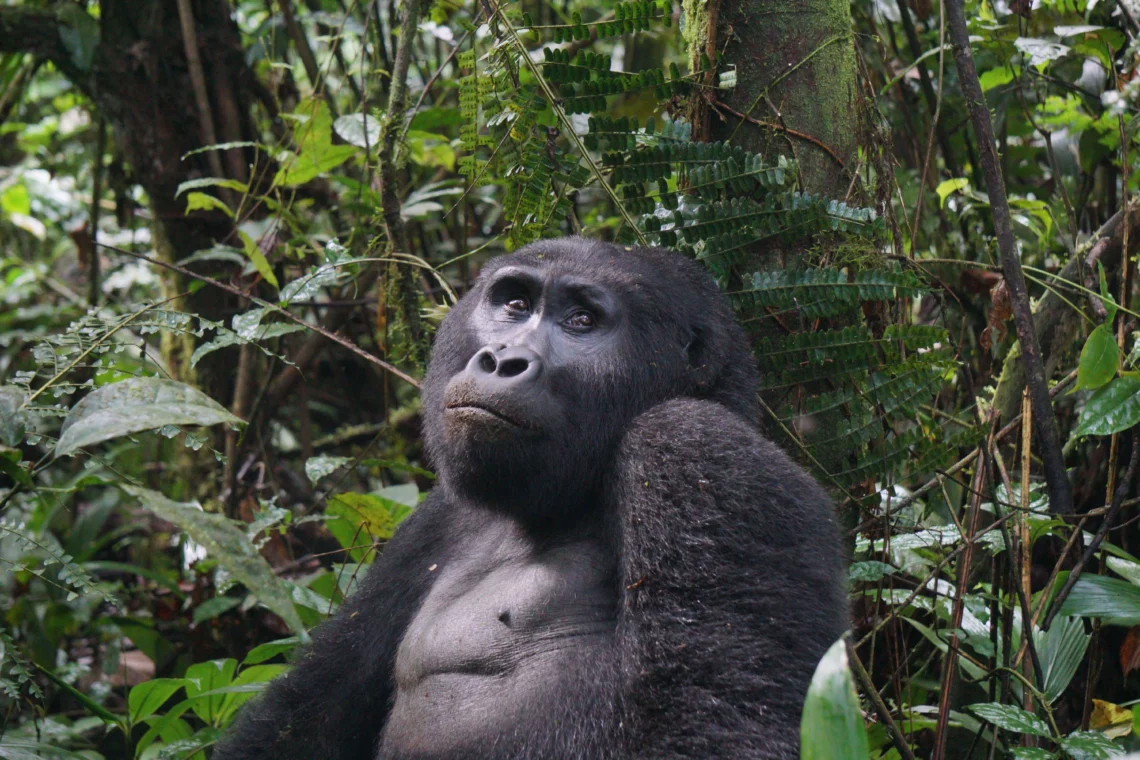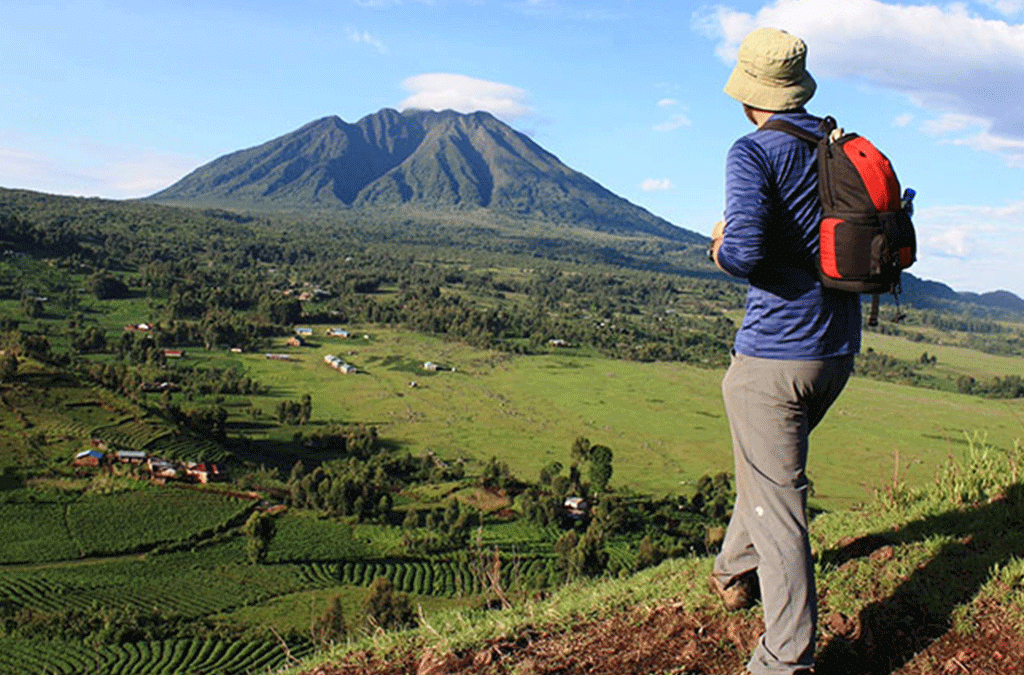How Safe Is Uganda for First-Time Travellers? | Complete 2026 Uganda Safety Guide
How Safe Is Uganda for First-Time Travellers?
There is a quiet magic about Uganda that captures every traveler’s heart the moment they set foot on its lush soil. Known as the Pearl of Africa, this East African gem brims with landscapes that shift from savannah to rainforest, from the snow-capped peaks of the Rwenzoris to the mirror-like stillness of Lake Bunyonyi. It is a country blessed with biodiversity, cultural richness, and some of the most welcoming people on the continent. Yet for many first-time travelers, a question naturally arises: Is Uganda safe to visit? Safety is often the first concern for anyone traveling to a new destination, especially in regions that are less familiar or have occasionally been misunderstood by global media.
Uganda, like any other travel destination, demands awareness and preparation. But it is also a place where myths about insecurity often overshadow the everyday reality of peace, hospitality, and progress. Understanding how safe Uganda is involves looking beyond the headlines to the lived experiences of travelers, locals, and tourism professionals who know the country intimately. This comprehensive guide offers a detailed, honest, and well-rounded exploration of Uganda’s safety landscape—covering personal security, political stability, transport, health, and cultural awareness—providing everything a first-time traveler needs to make an informed decision with confidence.
Understanding the Reality of Safety in Uganda
Uganda is one of the most politically stable and tourist-friendly countries in East Africa. Over the past two decades, the nation has made remarkable strides in maintaining internal peace, improving infrastructure, and enhancing traveler safety. The capital city, Kampala, is a vibrant metropolis that never sleeps—filled with modern hotels, lively nightlife, and a cosmopolitan blend of people. Despite being bustling and busy, the city operates under strong community values, and most areas remain safe for visitors who observe basic travel precautions.
Uganda’s government, through the Ministry of Tourism and the Uganda Tourism Police, has placed significant emphasis on ensuring that tourism zones remain secure. The Uganda Tourism Police, a specialized branch of the national police force, was established specifically to safeguard tourists and tourism assets in the country. They patrol national parks, airports, hotels, and major attractions, providing both a visible and reassuring presence for travelers.
Crime rates in Uganda are relatively low compared to many urban centers around the world, and the majority of incidents reported involve petty theft rather than violent crime. Most travelers report feeling safe walking around towns during daylight hours, interacting with locals, and exploring attractions freely. However, as in any destination, being mindful of surroundings, avoiding isolated areas after dark, and keeping valuables secure remain standard advice.
The Political Climate: Stability and Security
Uganda has enjoyed sustained political stability since the 1980s. Under the current governance system, the country has prioritized development and international cooperation, ensuring an environment conducive to tourism and investment. Major cities like Kampala, Entebbe, Jinja, and Mbarara operate smoothly, and the government’s consistent focus on maintaining law and order has resulted in a steady flow of tourists over the years.
Political demonstrations do occur from time to time, as they do in many democracies, but these are usually limited in scope and are swiftly managed by law enforcement. Travelers are generally advised to avoid participation in political gatherings and to stay informed through reliable local or embassy channels. In most parts of the country—particularly within the national parks and rural tourism areas—political unrest is virtually nonexistent.
The Uganda People’s Defence Force (UPDF) also plays a critical role in maintaining border security and ensuring that the country remains free from cross-border conflicts. Neighboring nations like Kenya, Tanzania, and Rwanda share peaceful diplomatic relations with Uganda, which strengthens regional stability and contributes to the country’s overall safety profile.
Personal Safety and Common-Sense Awareness
Personal safety in Uganda largely depends on awareness and preparation. For first-time travelers, adopting simple, common-sense habits can make the journey worry-free. The majority of Ugandans are known for their warmth, politeness, and willingness to help foreigners. Tourists often remark on the friendliness of locals who greet strangers with smiles and are eager to share their culture.
In public spaces such as markets, transport hubs, and nightlife districts, maintaining awareness of one’s belongings is important. Pickpocketing can occur in crowded areas, especially in downtown Kampala or bus stations. Carrying a small amount of cash, using hotel safes, and keeping travel documents secure are sensible practices. However, violent confrontations against tourists are extremely rare, and most incidents stem from opportunistic theft rather than targeted crime.
For solo travelers or those venturing into rural areas, hiring a local guide or traveling with a registered tour company adds an additional layer of safety. Guides are familiar with regional dynamics, local customs, and can navigate language barriers effectively. They also serve as cultural bridges, ensuring respectful interactions and protecting travelers from potential misunderstandings.
Safety in National Parks and Wildlife Reserves
Uganda’s national parks are the crown jewels of its tourism industry. Places like Bwindi Impenetrable National Park, Queen Elizabeth National Park, Murchison Falls National Park, and Kidepo Valley National Park attract thousands of visitors annually, drawn by the promise of gorilla trekking, chimpanzee tracking, and unforgettable wildlife encounters.
Security within these protected areas is robust and carefully managed by the Uganda Wildlife Authority (UWA). Armed ranger escorts accompany travelers during activities such as gorilla trekking or nature walks, not because of immediate danger but as a precautionary measure and reassurance. Park boundaries are well-patrolled, and communities surrounding conservation zones have been integrated into tourism programs, ensuring local support for visitor safety.
Incidents involving wildlife are exceedingly rare when visitors adhere to park guidelines. Rangers provide thorough briefings before treks, outlining how to behave around animals and how to respond if they approach. The controlled and organized structure of Uganda’s wildlife tourism is one of the reasons the country enjoys such a strong reputation for safety among nature-based travelers.
Transportation and Road Safety
Transportation in Uganda has improved dramatically in recent years, with ongoing investments in road networks, airports, and highways. Entebbe International Airport, Uganda’s primary entry point, meets international safety standards and is staffed with professional personnel. The airport’s expansion and modernization projects have streamlined passenger clearance, making arrivals and departures more comfortable.
Within cities, taxis and motorcycle taxis (locally known as boda-bodas) are widely used. While convenient, travelers are advised to exercise caution when using motorcycles, as road discipline can vary. For safer and more reliable transport, registered taxi companies, hotel transfers, or private tour operators are recommended.
Long-distance travel between cities is usually comfortable via private or tourist shuttle vehicles, which are well-maintained and air-conditioned. Road conditions to major destinations like Fort Portal, Gulu, or Kabale have seen major upgrades, making travel not only faster but safer. However, nighttime travel is generally discouraged due to reduced visibility and occasional livestock crossings in rural areas.
For those traveling with professional tour operators such as WildHorn Africa, transportation safety is given top priority. Vehicles are regularly serviced, driven by licensed guides, and equipped with communication systems for emergency contact—an assurance that gives travelers peace of mind while exploring Uganda’s breathtaking landscapes.
Health and Medical Safety
Health safety is an important consideration for all travelers, particularly those visiting Africa for the first time. Uganda maintains a robust public health framework supported by both local and international institutions. Major cities have well-equipped hospitals, while private medical facilities in Kampala and Entebbe meet international standards.
Travelers are required to present a Yellow Fever vaccination certificate upon entry, and it is strongly recommended to take anti-malarial medication before and during the trip. While Uganda is located in a tropical region, mosquito prevention measures—such as sleeping under treated nets, wearing long sleeves at night, and applying insect repellent—help minimize risks.
Clean bottled water is widely available, and most hotels and lodges maintain strict hygiene standards. Food served in reputable establishments is safe and freshly prepared. Uganda’s growing hospitality industry has adopted international food safety protocols, making dining experiences both enjoyable and secure.
For emergencies, many safari lodges partner with air evacuation services like Flying Doctors, ensuring that travelers can receive prompt medical attention if needed, even in remote areas. Travel insurance that covers medical evacuation is a smart precaution for every visitor.
Cultural Sensitivity and Social Harmony
Safety in Uganda extends beyond physical security—it also involves understanding and respecting cultural norms. Ugandans are known for their hospitality, humility, and community spirit. However, the society remains largely conservative in social values, and showing respect for local customs greatly enhances a traveler’s experience.
Visitors are encouraged to dress modestly, especially in rural areas and religious settings. Public affection should be kept minimal, and photography of government buildings, military sites, or people without consent should be avoided. A respectful approach builds trust, and Ugandans often respond warmly to visitors who show genuine interest in their traditions.
For first-time travelers, this cultural awareness adds another layer of safety, as it prevents misunderstandings and fosters positive relationships with locals. Being courteous, greeting people politely, and showing patience in communication are simple gestures that go a long way in creating a sense of belonging and security.
Women Travelers and Solo Travel Safety
Uganda is increasingly popular among female and solo travelers, many of whom describe their experiences as safe, empowering, and enriching. Women travelers can comfortably explore cities, participate in safaris, and engage in local activities without harassment. In fact, Ugandans tend to be protective and helpful toward foreign guests, especially women traveling alone.
That said, exercising caution in nightlife settings, choosing trusted transportation, and avoiding excessive alcohol consumption are universal safety guidelines that apply here as well. Many lodges, hotels, and tour operators provide female guides or coordinators upon request, making solo journeys both secure and supportive.
The growing community of female travelers in Uganda also benefits from networks such as local women-led travel companies and community-based tourism initiatives. These empower women while offering visitors authentic cultural exchanges in a safe environment.
Emergency Services and Local Assistance
Uganda’s emergency response systems have evolved significantly. The Uganda Police Force, the Tourism Police, and private security companies collaborate to assist travelers in distress. Emergency contact numbers are available at airports, hotels, and major attractions. In the event of lost property or minor incidents, local authorities are usually cooperative and efficient in providing assistance.
Embassies and consulates, particularly those in Kampala, provide consular support to their citizens. Tour operators also play a vital role by offering 24-hour customer support and local coordination, ensuring that travelers never feel stranded.
In remote safari destinations, park rangers and lodge staff are trained to handle emergency situations, from medical concerns to logistical issues. Their familiarity with terrain and communication protocols enhances traveler security across all regions.
Media Perception vs. Reality
International media occasionally portray Africa through the lens of conflict or disease, leading to misconceptions about safety in countries like Uganda. In reality, Uganda’s tourism regions are far removed from the few areas that once experienced instability decades ago. The current environment is peaceful, organized, and welcoming.
Travelers who have visited Uganda frequently express surprise at how safe and vibrant the country feels. Cities are bustling, children play freely in the streets, and visitors are greeted with sincere curiosity rather than suspicion. The hospitality culture runs deep—Ugandans often take personal responsibility for ensuring that guests feel secure.
Tourism plays a vital role in the national economy, and both government and local communities are invested in preserving Uganda’s positive global image. As a result, safety protocols are continuously reviewed and strengthened to uphold traveler confidence.
Digital and Financial Safety
Modern travelers also value digital safety—especially when using mobile payments, Wi-Fi networks, or ATMs abroad. Uganda’s banking system is advanced, with major banks offering secure ATMs and digital payment services. Using ATMs located in banks or hotels minimizes risk, and credit cards are widely accepted in urban areas and high-end lodges.
Internet connectivity in Uganda is reliable, especially in major towns and tourist centers. However, travelers should avoid using public Wi-Fi for sensitive transactions and instead rely on mobile data or secure hotel networks.
Mobile money services such as MTN Mobile Money and Airtel Money are common, allowing safe, cashless transactions. Many tour companies and lodges now accept these payment methods, ensuring convenience and reducing the need to carry large amounts of cash.
Final Thoughts: The True Measure of Safety in Uganda
Safety is not merely the absence of danger—it is the presence of confidence, preparedness, and support. In Uganda, travelers discover that this confidence is built into the very fabric of the tourism experience. From the smiling faces at Entebbe Airport to the careful attention of park rangers in the wild, from the efficiency of tour operators to the warmth of local communities, Uganda extends a genuine sense of security that allows travelers to relax and immerse themselves in its beauty.
For first-time visitors, Uganda offers the comfort of modern amenities and the adventure of untamed nature. It is a country where safety coexists with excitement, and where curiosity is rewarded with hospitality. The key lies in informed travel—understanding local norms, respecting regulations, and partnering with credible travel providers.
Those who have explored Uganda know that beyond the administrative checks and travel advisories lies a country that is peaceful, organized, and filled with heart. Every traveler who takes the time to experience Uganda discovers that the greatest risk of visiting is falling deeply in love with the land, its people, and its rhythm.
For a well-planned, professionally guided, and secure experience, travelers are encouraged to book their Africa tours and safaris with WildHorn Africa. With its impeccable record, experienced guides, and deep knowledge of Uganda’s terrain and culture, WildHorn Africa ensures that every journey is safe, authentic, and unforgettable—crafted with care and delivered with passion.






